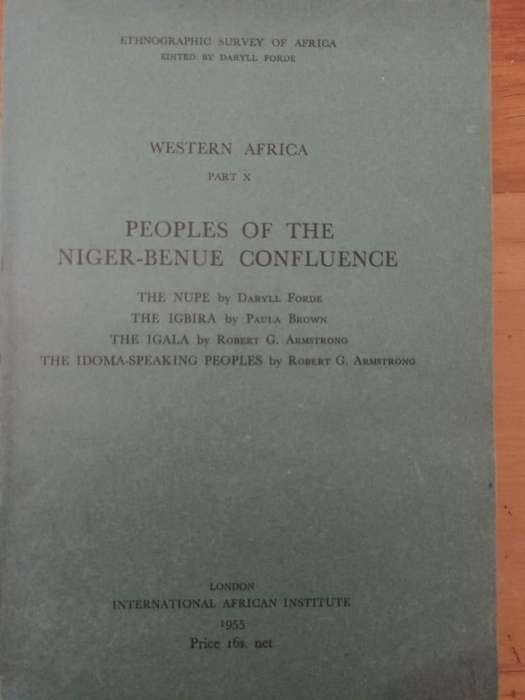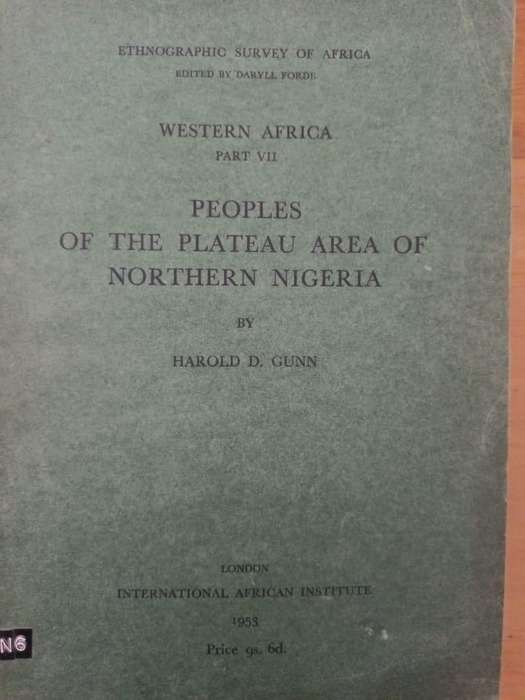









Nigeria: Ethnographic Survey of Africa: Western Africa. Four monographs in the series, 1951 - 1955
Check my rate
| Main centres: | 1-3 business days |
| Regional areas: | 3-4 business days |
| Remote areas: | 3-5 business days |










| Main centres: | 1-3 business days |
| Regional areas: | 3-4 business days |
| Remote areas: | 3-5 business days |
(1) Daryll Forde, The Yoruba-Speaking Peoples of South-Western Nigeria. London: International African Institute, 1951. Wraps, 102 pages, folding map.
(2) Harold D. Gunn, Peoples of the Plateau Area of Northern Nigeria. London: International African Institute, 1953. Wraps, 111 pages, folding map.
(3) Laura and Paul Bohannan, The Tiv of Central Nigeria. London: International African Institute, 1953. Wraps, 100 pages, folding map.
(4) Daryll Forde, Paula Brown, Robert G. Armstrong, Peoples of the Niger-Benue Confluence. London: International African Institute, 1955. Wraps, 160 pages, folding map.
Ex-library copies, with the usual stamps and markings. Some chipping on the spines. Light foxing. Overall, good condition.
'THE International African institute has, since 1945, been engaged on the preparation and publication of an Ethnographic Survey of Africa, the purpose of which is to present in a brief and readily comprehensible form a summary of available information concerning the different peoples of Africa with respect to location, natural environment, economy and crafts, social structure, political organization, religious beliefs and cults. While published material has provided the main basis for the Survey, a large number of unpublished documentsreports and records in government files and in the archives of missionary societies, as well as field notes and special communications by anthropologists and others, have been generously made available and these have been supplemented by personal correspondence and consultation. The Survey is being published in a number of separate volumes, each of which is concerned with one people or a group of related peoples, and contains a comprehensive bibliography and a specially drawn map. A committee of the Institute, to determine the scope of the Survey, was set up under the Chairmanship of Professor Radcliffe-Brown, and the Director of the Institute has undertaken the editing and organization. The generous collaboration of a number of research institutions and administrative officers in Europe and in African territories was secured, as well as the services of senior anthropologists who have been good enough to supervise and amplify the drafts. The work of the Survey was initiated with the aid of a grant from the British Colonial Development and Welfare Funds, on the recommendation of the Social Science Research Council, to be applied mainly though not exclusively to work relating to British territories.'
Ethnography. Ethnology. Anthropology. Sociology.